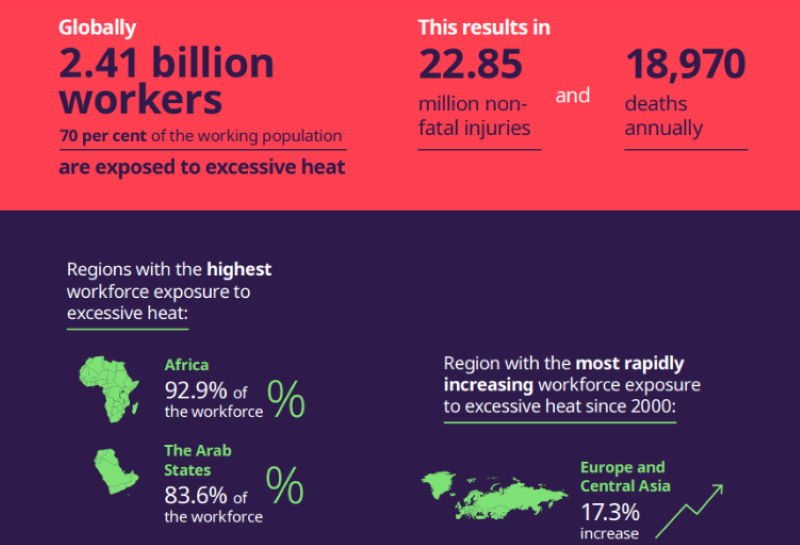Over 20,000 people to Die every year from excessive heat, with Africa suffering the highest temperatures
The African continent will be more affected as over 70 percent of the global workforce is declared to be at risk from death or injury as a result of extreme heat.
The United Nations (UN) says 2.4 billion people are being endangered by ‘increasingly severe heat waves driven largely by a fossil-fuel charged, human-induced climate crisis.’
Research by the World Economic Forum predicts that the heat waves will claim 1.6 million lives by 2050. This is equivalent to 18,970 deaths per year, starting now.
In Africa, nearly 93 percent of the workforce is exposed to extreme heat, according to the UN.

On the Arabian Peninsula, over 83 percent of workers face excessive heat.
In Europe and Central Asia, the risk to workers from extreme heat is increasing faster than anywhere else in the world, having risen by more than 17 percent since 2020.
United Nations’ Secretary-General, António Guterres, is urging for international cooperation to reduce the risks.
“Extreme heat is having an extreme impact on people and the planet. The world must rise to the challenge of rising temperatures.”
Guterres calls for action in four areas, these include:
- Caring for the vulnerable
- Protecting workers
- Using data and science to boost resilience
- Limiting global temperature rises to 1.5°C by replacing fossil fuels with renewable energy.
Heat waves can strike in most areas of the world, including Polar Regions, but traditionally hot areas are posing increased risks to workers as the planet warms.
The United States’ National Institute for Occupational Safety and Health (NIOSH) identifies workers most at risk from excessive heat.
They include “firefighters, bakery workers, farmers, construction workers, miners, boiler room workers, factory workers and others”.
The National Institute for Occupational Safety and Health says workers aged 65 or older, who are overweight, have heart disease or high blood pressure are at greater risk from extreme heat.
Almost 23 million workplace injuries worldwide are caused by excessive heat, according to the UN Secretary-General warned in his July 2024 address.
Heat stress ‘an invisible killer,’ the International Labor Organization (ILO) report says, adding that it can “immediately impact workers on the job, by leading to illnesses such as heat exhaustion, heatstroke and even death.
In the longer term, workers are developing serious and debilitating chronic diseases, impacting the cardiovascular and respiratory systems, as well as the kidneys”.
The International Labor Organization says 26.2 million people are living with chronic kidney disease as a result of heat stress in the workplace.

